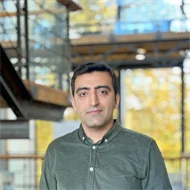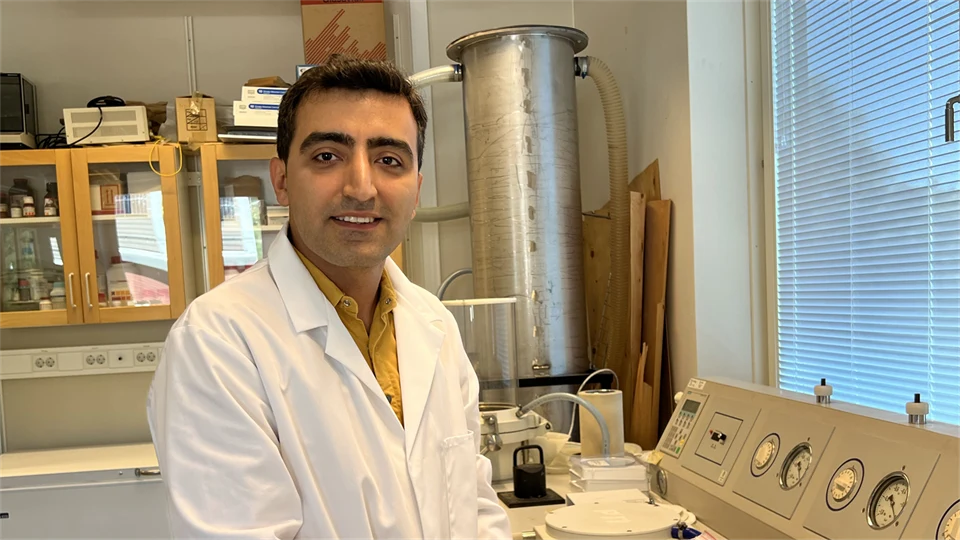From chemical engineering to triboelectric research
Erfan Jafarpour earned a bachelor's in chemical engineering from Hamedan University in 2015. In his further studies he focused on water treatment. He is now a PhD student at Mid Sweden University, exploring the potential of regenerated cellulose and how it can be used in triboelectric generators.
What is your educational and professional background, and what did you focus on before joining Mid Sweden University?
I was born in Hamedan, one of the historical and beautiful cities of Iran. In 2015, I received a bachelor's degree in chemical engineering from my hometown university, Hamedan University of Technology. The ability of chemical engineers to address and solve many environmental issues inspired me to pursue my field further in search of solutions to global environmental problems. This led me to Sharif University of Technology, one of the most prestigious technical universities in Iran.
When I graduated in 2019, I was eager to start my PhD overseas. But my plans were temporarily derailed by the global Coronavirus pandemic. So, I continued as a researcher and lab specialist at the Center of Nanoscience and Nanotechnology at Sharif University. Given the water shortage crisis in my country, my research primarily focused on water treatment. After gaining a four-year invaluable experience there, I am now here to continue my path as a PhD student.
What made you choose to pursue your PhD at Mid Sweden University?
I was actively following announcements for PhD positions when I came across an advertisement about expanding the use of cellulose in triboelectric nanogenerators. I found this topic interesting. After interviewing with the project supervisors, I was confident that both the subject matter and the research group were perfectly aligned with my interests and excitement.
What do your research studies focus on?
My project title is "Molecularly Designed Cellulose Materials for Triboelectric Applications." Triboelectric nanogenerators (TENGs) were introduced to the world in 2012 as a novel solution for self-powered and sustainable devices. My goal is to explore the inherent potential of regenerated cellulose and further develop it for use in triboelectric generators (TENGs).
How do you find Mid Sweden University and Sundsvall? Is it like you expected?
However Mid Sweden University is relatively young, it is making significant steps towards establishing itself as an international university. The resources and support available to PhD students here allow me to focus on my research effectively. I have found my supervisors and research group members knowledgeable, kind, and supportive. The campus in Sundsvall is beautiful, offering views of the sea, forest, and mountains. It’s a calm city, perfect for anyone seeking a connection with nature to refresh and recharge. The inhabitants are warm and welcoming, making it a wonderful place to live and study.
Contact

